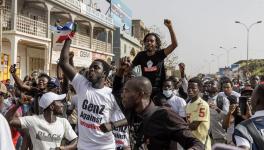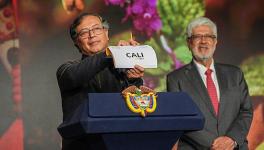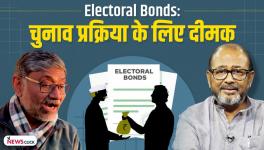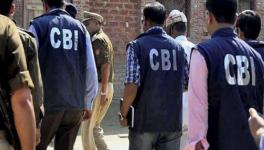More Than 11 Million Colombians Vote Against Corruption
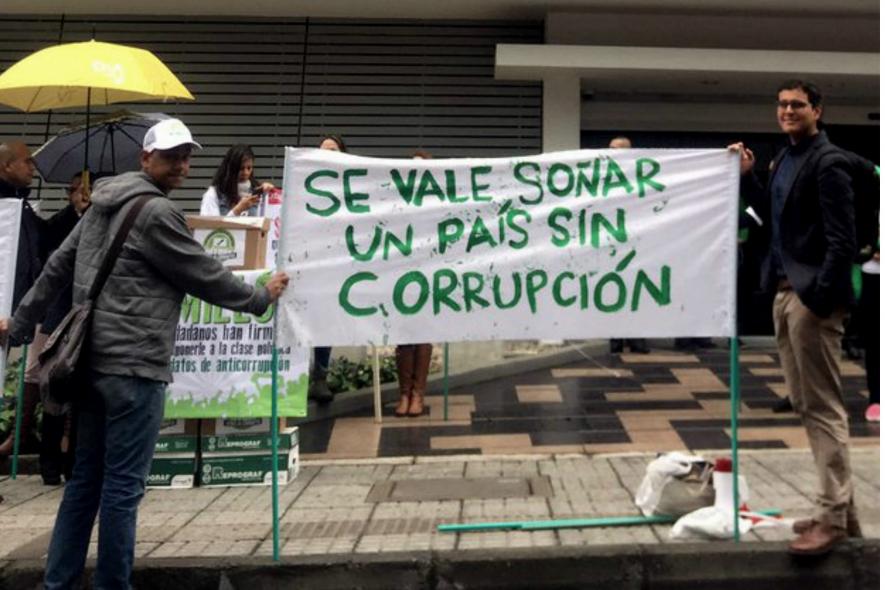
A popular consultation held on Sunday on the issue of corruption in Colombia saw millions turning up to make their voices heard. The consultation was 535,776 votes short of the quorum of 12,140,342 votes that would have enabled its provisions to be sent it to Congress to be voted on as individual bills. However, many activists still see the turnout as a victory. Of the 11 million who participated in the popular consultation, 99% voted ‘yes’ – in support of the anti-corruption measures that were proposed. This is greater than the number of people who voted for Iván Duque in June and reinforces the trend of an increasing number of Colombians demanding real change in the country.
Throughout the campaign, the consultation was met with different types of slander campaigns from the right wing to discourage people from voting, as those from the right wing would be most affected if the consultation passed. There were accusations that the anti-corruption measures promoted “castro-chavism” (one of the most common buzzwords of the Colombian right wing). Ex-president and suspected war criminal Alvaro Uribe even tweeted that Senator Claudia López would receive money for every vote cast in support of the consultation if the quorum was met.
The following graphic shows the numbers of people who voted ‘Yes’ in the plebiscite in 2016 on the peace agreement, the number of people who voted for the alternative candidate Gustavo Petro in the June 2018 elections, and the number of people who voted in the anti-corruption popular consultation.
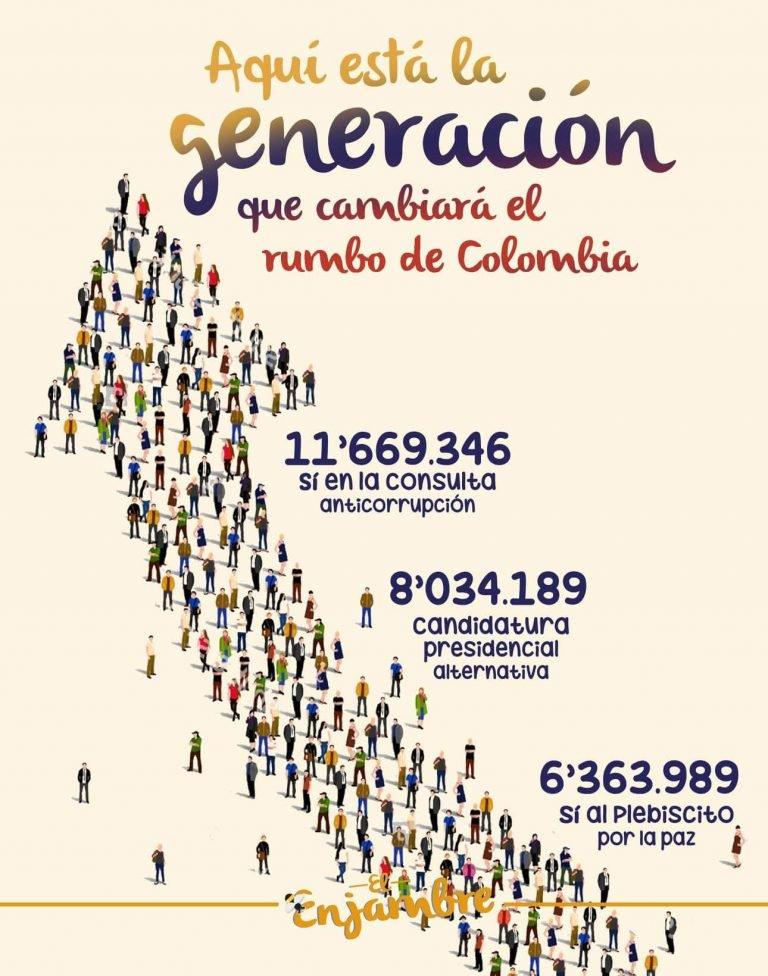
“here is the generation that will change the direction of Colombia”
The popular consultation (consulta popular) is a mechanism of participation created by the 1991 constitution of Colombia in order to guarantee the exercise of political power by citizens. It differs from a plebiscite, which is voting on a presidential initiative, and a referendum, which is to approve or repeal laws. Instead, it aims to let people decide on issues of national, departmental or municipal interests. In order for the popular consultation to become a reality, the promoters of the consultation must collect signatures of 5% of the voting population who believe that the consultation should be held, and subsequently, the question of the consultation undergoes a constitutional examination by legal authorities. Finally, in order for the consultation to be valid, one-third of the eligible voters must participate and in order to win, the option must receive more than half the votes. In the past couple of years, many municipalities have used the popular consultation mechanism in their struggles against mining and energy extraction. The anti-corruption consultation is the first time the mechanism has been used at a national level. The entire process of the popular consultation implies a high-level of interaction with the population, processes of education and awareness-raising even before the consultation becomes a reality. In 2017, the campaign collected over 4 million signatures in order for the consultation to be approved.
The anti-corruption popular consultation was called for and organized by the Alternative Democratic Pole and Green Parties. Senator Claudia López was one of its prominent proponents. The seven questions in the popular consultation referred to different measures to be taken in order to confront corruption in Colombia. If it had passed, the different points would have been taken forward as individual bills.
It asked if citizens agreed to the following points:
- Lowering the salaries of members of Congress and high-level government functionaries.
- Removing the carceral benefits and privileges of those guilty of corruption and prohibiting them from being hired by the State.
- Transparent hiring process requiring standardized pre-hiring documents for the whole country (currently, there are only standardized pre-hiring documents for the infrastructure sector).
- Creation of public budgets with citizen participation through public hearings.
- Members of Congress must be held accountable for their work, making public their projects, voting and initiatives.
- Make politicians’ tax-returns and unjustified income public, and seize their assets if necessary.
- No more hanging on to power; a maximum of three periods in public entities.
The campaign supporting the consultation stated that with the anti-corruption measures proposed by the consultation, Colombia would combat the pillaging of around 9.6 trillion Colombian pesos (over $3 billion) a year. As Colombia Informa pointed out, without this yearly looting, the Colombian government would be able to pay twice the amount necessary for implementation of the peace agreements and there would still be money left over.
Get the latest reports & analysis with people's perspective on Protests, movements & deep analytical videos, discussions of the current affairs in your Telegram app. Subscribe to NewsClick's Telegram channel & get Real-Time updates on stories, as they get published on our website.











